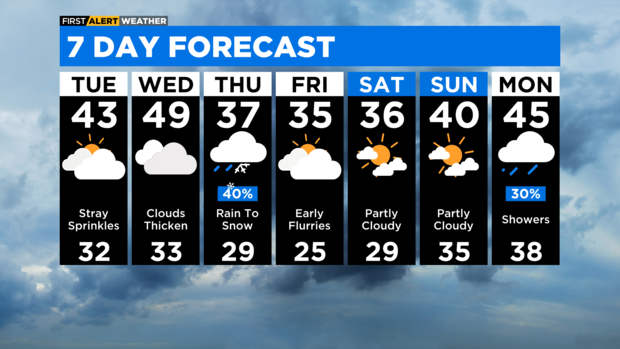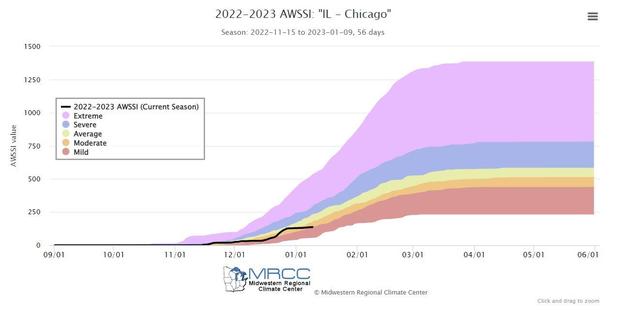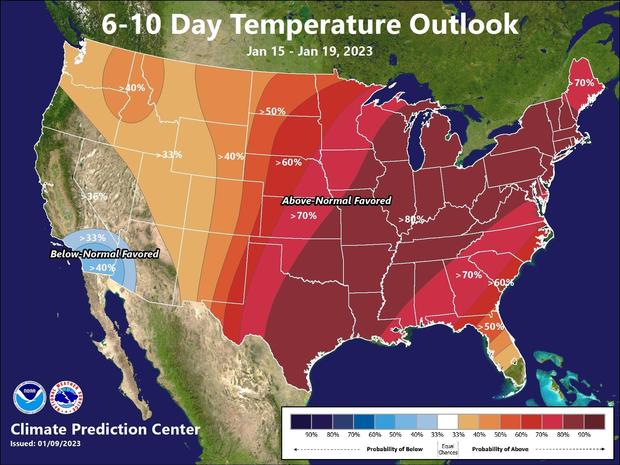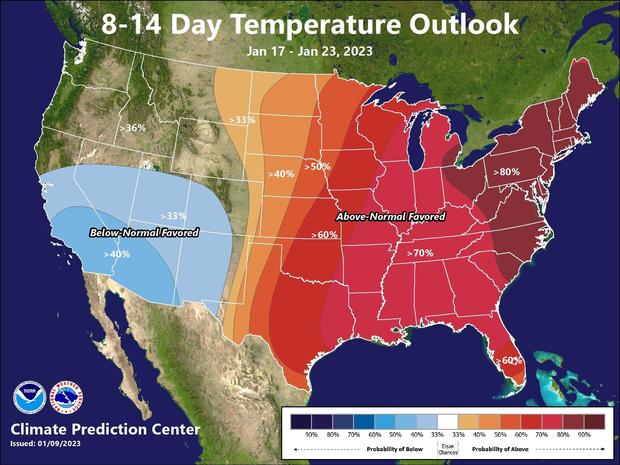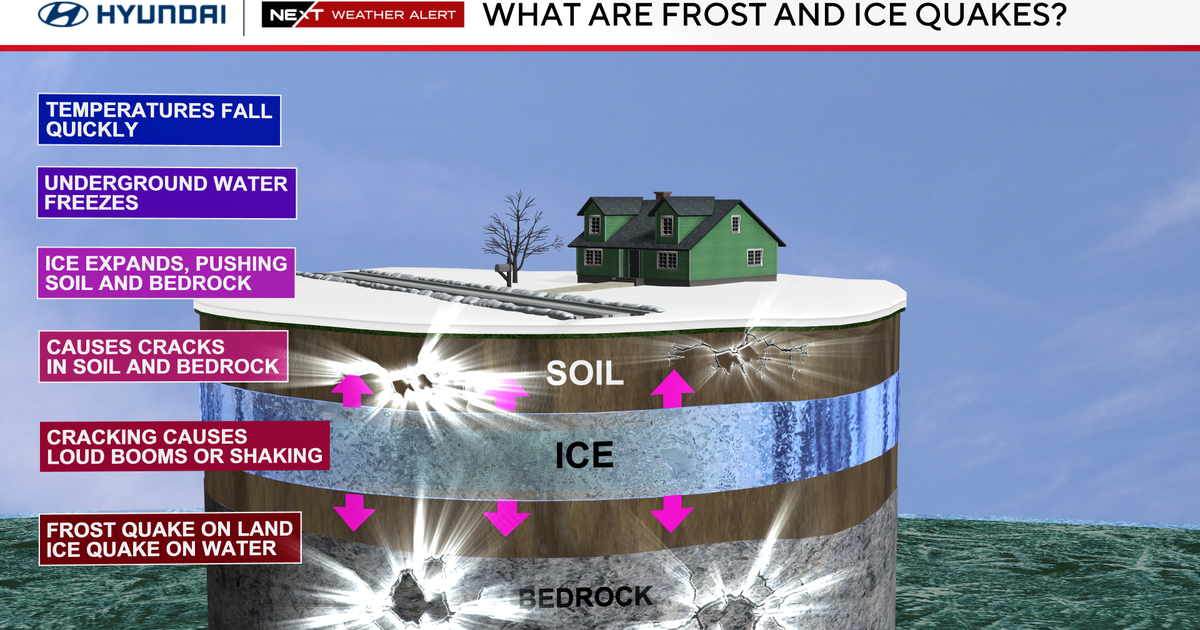Chicago Weather: Data shows winter has been pretty mild, despite December cold
CHICAGO (CBS) -- Yes, those days just before Christmas were insanely brutal, but the season overall hasn't been bad at all.
Bonus: The forecast is calling for temperatures well above average, much more in line with March than January.
Meteorologists measure the intensity of cold weather using the Accumulated Winter Season Severity Index (AWSSI). The idea is to objectively index winter conditions using maximum/minimum temperatures, snowfall, snow depth and precipitation. As of this week, the index rates this season as moderate so far.
The measurements are not limited to meteorological winter (December-February). For AWSSI, "winter" begins when there is a measurable snowfall (0.1 inch), the maximum temperate is at or below 32 degrees--or on Dec. 1, if those conditions aren't met before then. The season ends with the last measurable snowfall, the last day of 1 inch of snow on the ground, last day with a max temperature of 32 or lower--or the last day of February.
As the data is gathered and scores assigned each day, the AWSSI is rated in five categories--extreme (5), severe, average, moderate or mild (1).
This year's AWSSI started on November 15. The black line on this chart shows that the index has stayed mostly in the moderate or mild range so far. The AWSSI does not account for wind, which would explain why the late December numbers weren't more extreme.
Looking past the seven-day forecast, the temperatures around Chicago are likely to remain above normal all the way toward the last week of January, according to the National Weather Service.
If you are traveling, that warmer-than-normal trend applies to a large portion of the United States. The exception would be southern California and Arizona.
